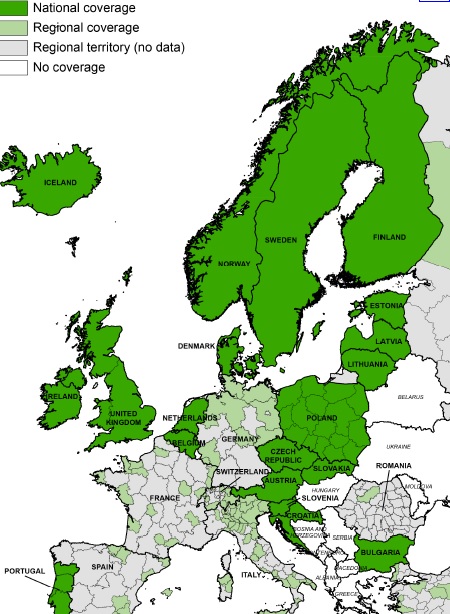
We are pleased to inform that the article: "Global surveillance of trends in cancer survival 2000–14 (CONCORD-3): analysis of individual records for 37 513 025 patients diagnosed with one of 18 cancers from 322 population-based registries in 71 countries" has been published in The Lancet.
The CONCORD-3 study, published in The Lancet, analysed individual patient records from 322 cancer registries in 71 countries and territories to compare 5-year survival from diagnosis for more than 37.5 million adults (aged 15–99 years) and children (0–14 years) with one of 18 common cancers:
- Adults: Oesophagus, Stomach, Colon Rectum, Liver, Pancreas, Lung, Melanoma of the skin, Breast (women), Cervix, Ovary, Prostate, Brain tumours, Myeloid malignancies, Lymphoid malignancies
- Children: Brain tumours, Acute lymphoblastic leukaemia, Lymphomas
These cancers represent three-quarters of all cancers diagnosed worldwide every year between 2000 and 2014. For the 10 cancers already included in the CONCORD-2 study, the researchers were able to examine trends over the 20-year period 1995–2014.
Cancer survival that is lower than expected has prompted national strategies for cancer control in many countries. The UK, Canada, Malta, Poland and Brazil have used results from the CONCORD programme in developing their cancer control policies.
From the public health perspective, 71 countries now have internationally comparable population-based cancer survival estimates for at least part of their population – and for 47 of those countries, the data have 100% national coverage. These estimates are based on direct observation of the survival of over 37 million cancer patients – real data about real people. They are not derived by statistical models with data from other countries.


Source:https://www.lshtm.ac.uk